Raise your voice
Suffrago is Anonymous by Design
Be your true self
Say what you truly think, not just what you think you have to say. We want to know what's on your mind.
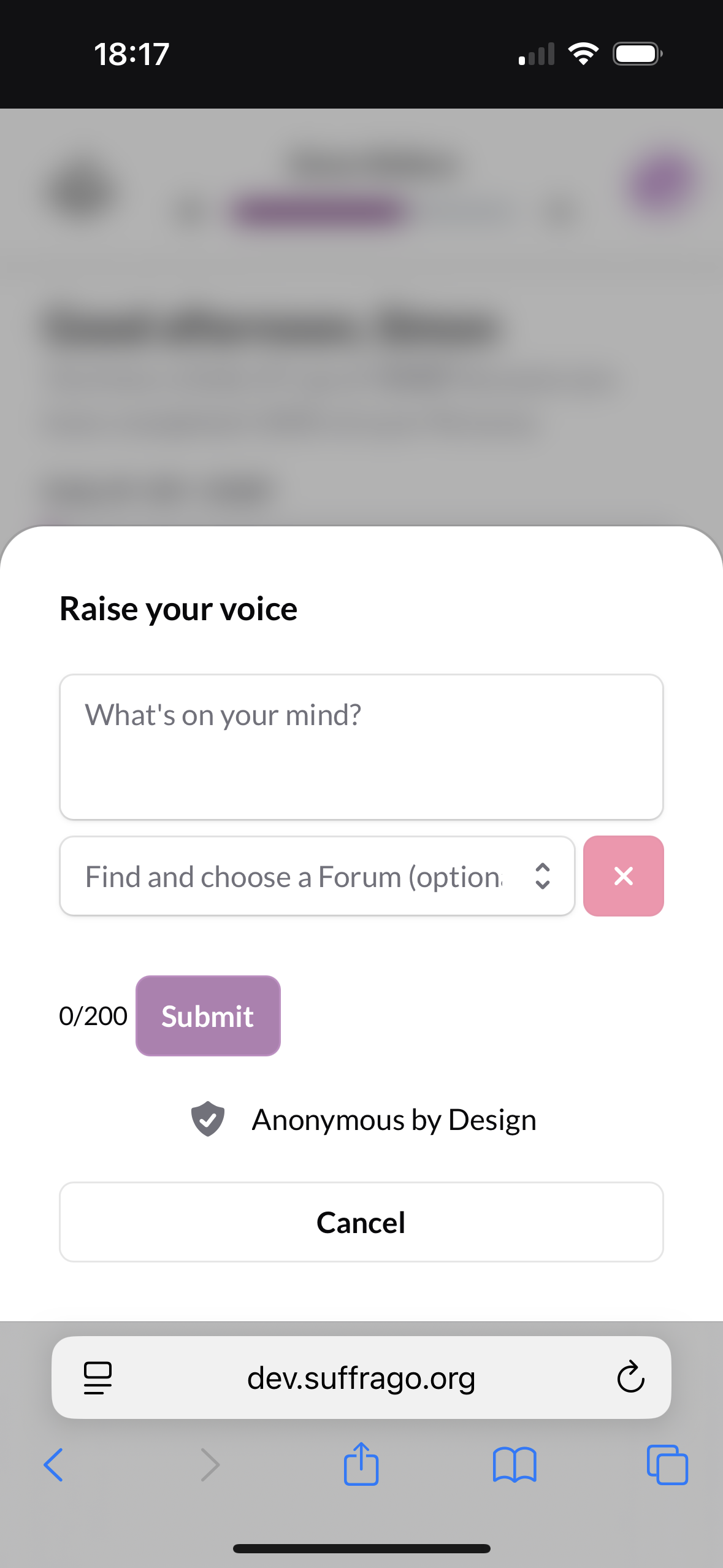
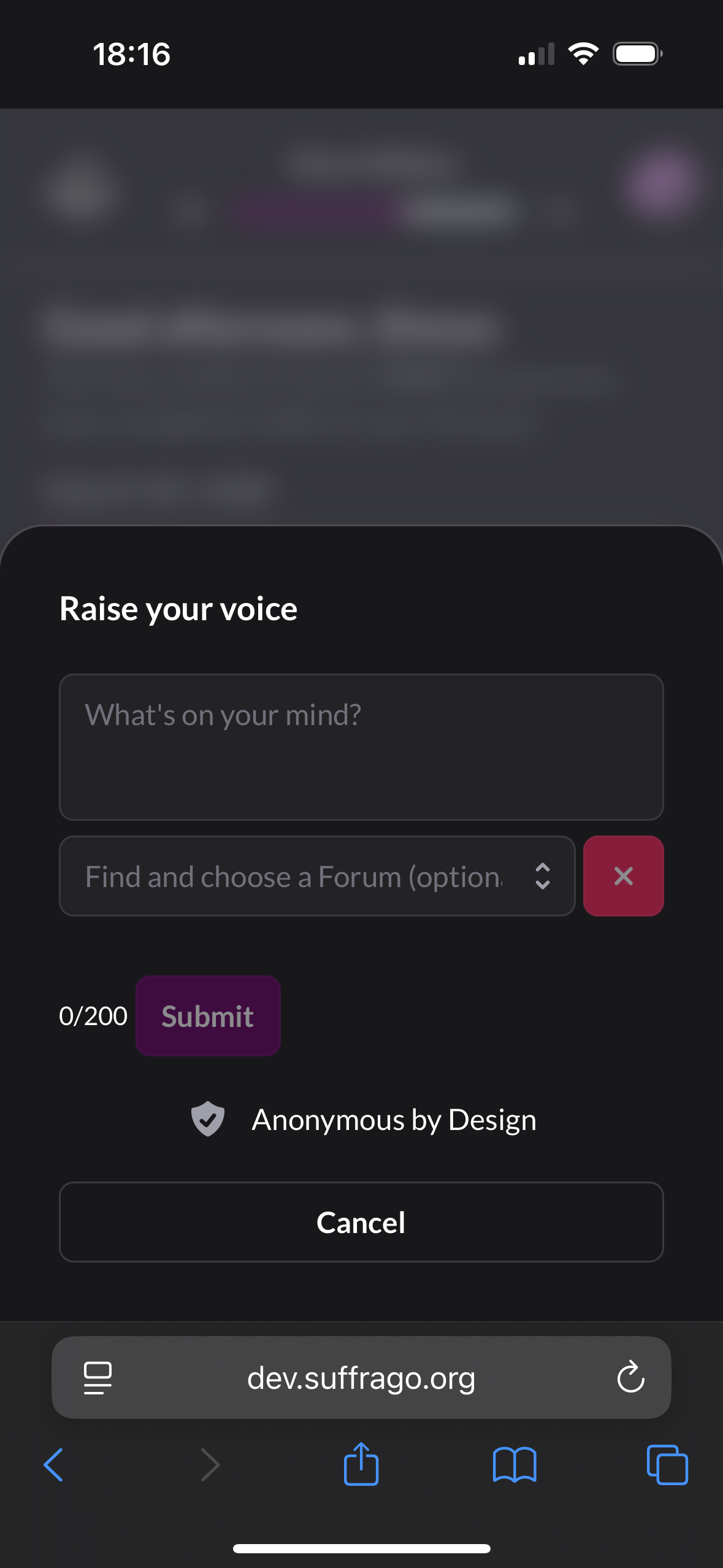
No visible comments
What you say on Suffrago is never seen by another user, and no-one ever will so long as you follow the rules.
No voting record
How you vote on Suffrago is always private. We only care about knowing where you have voted, never how.
Privacy by Design
Your data is double-encrypted and encrypted at rest. Keeping your information private is the most important thing.
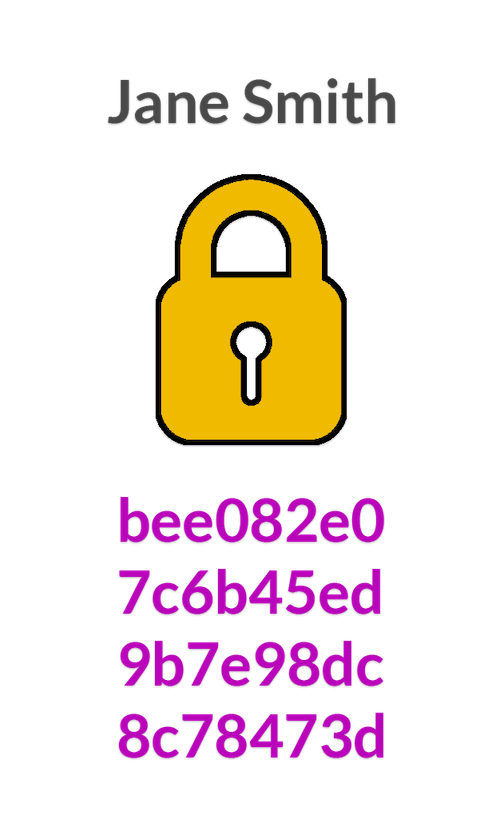
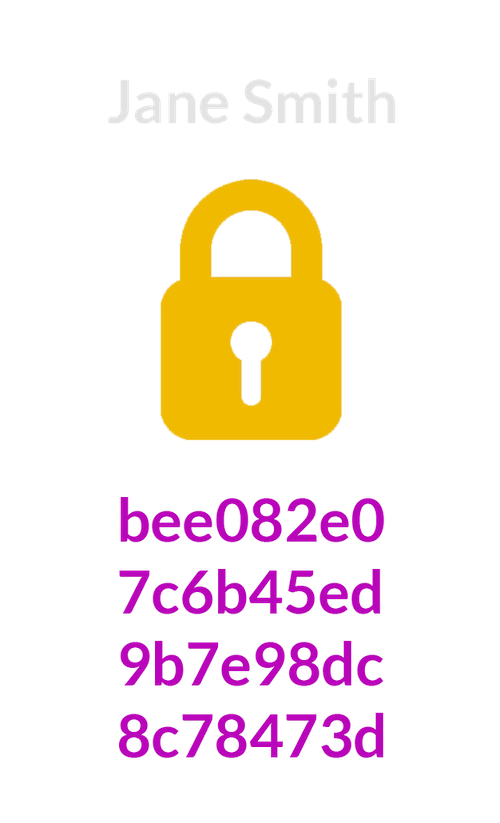

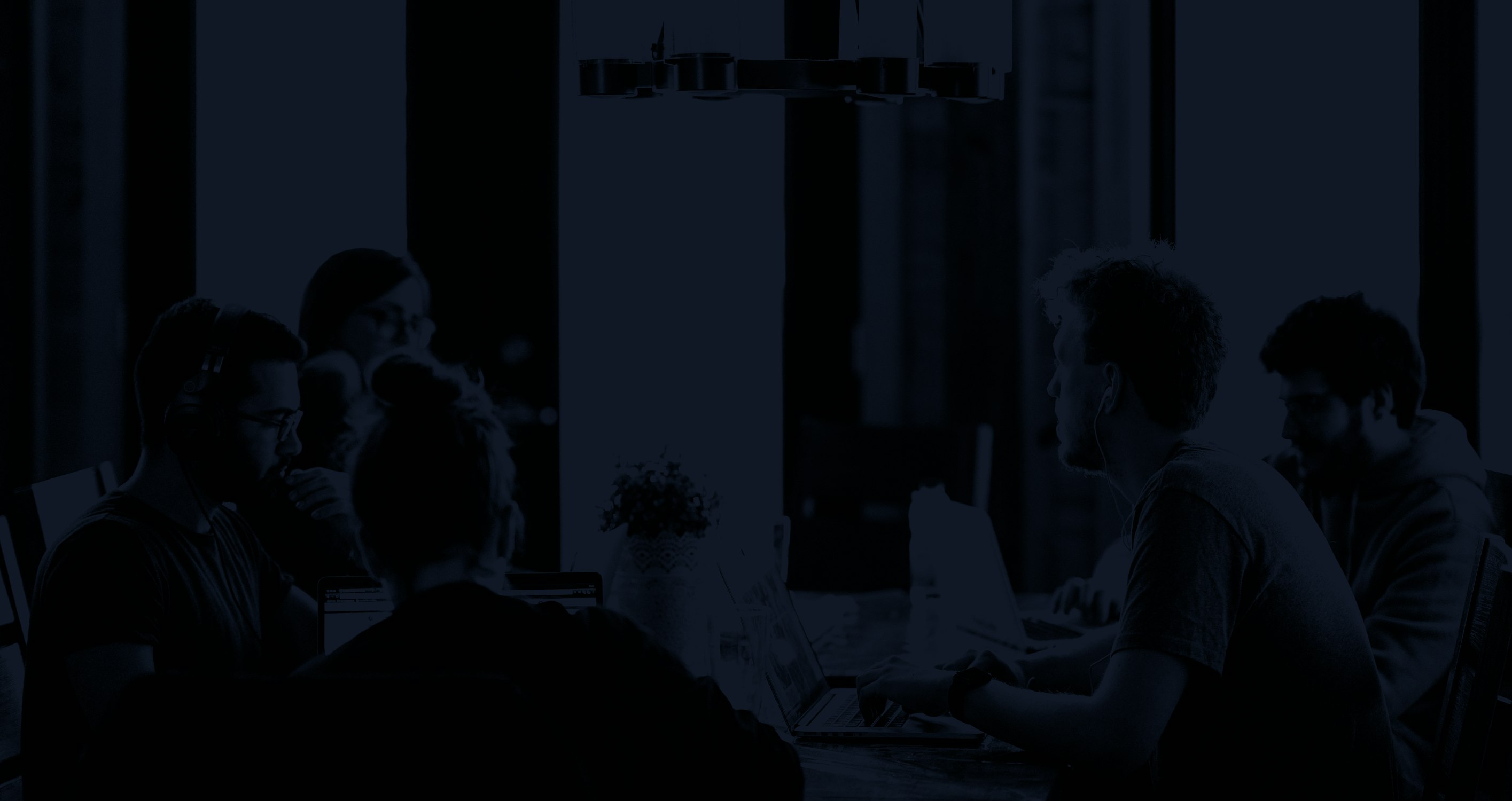
Respect at all times
One of our core values is to "Treat others with the dignity, fairness, and kindness you would want for yourself, regardless of how others may behave."
It's simple. Treat others with respect, don't break the law, don't put anyone else in danger, and don't act fraudulently; do this and you can express your opinions without fear of cancellation, retribution, or shadow banning.
Anonymity and Representation
Your Persona
How Suffrago protects your privacy and amplifes your voice.
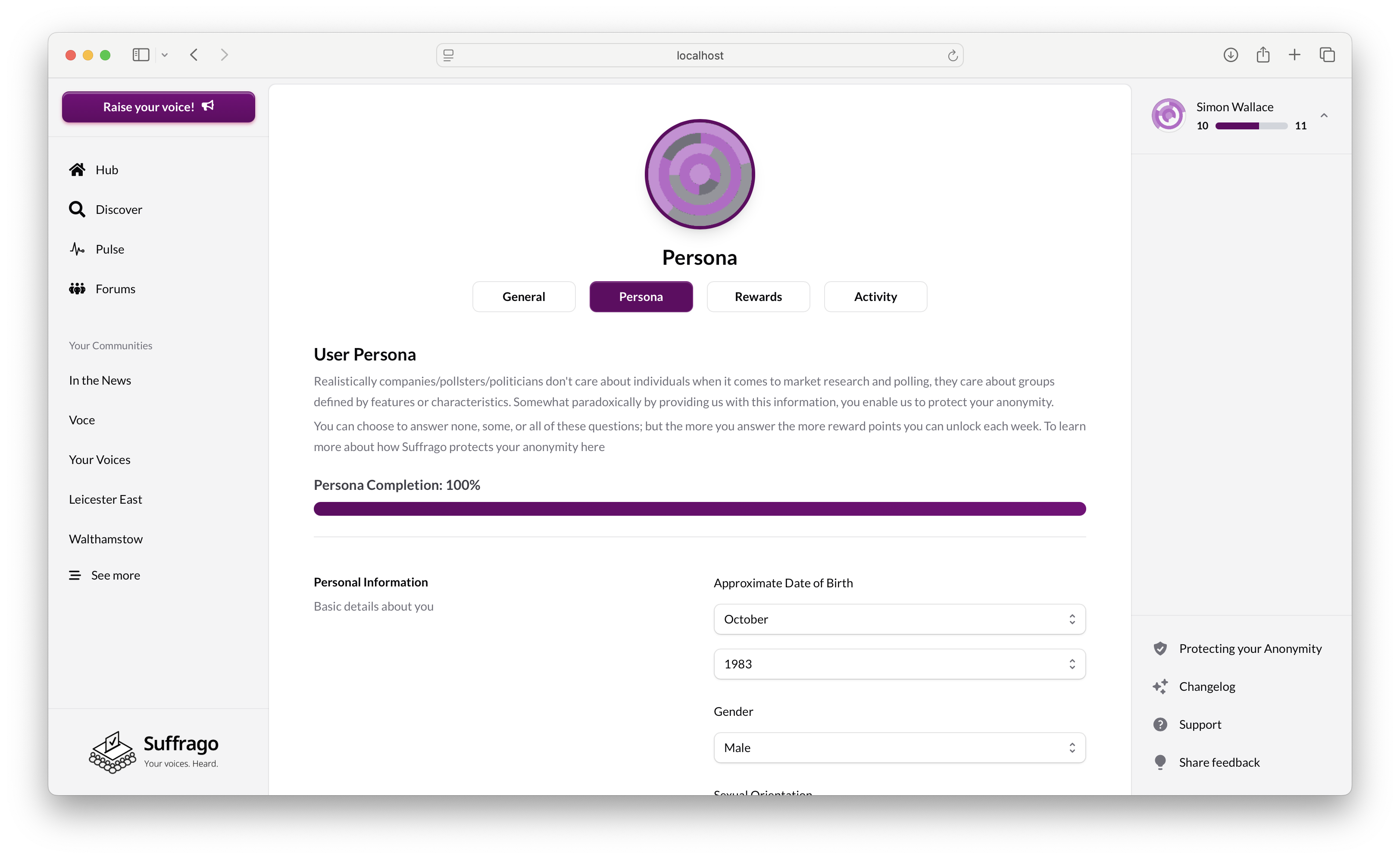
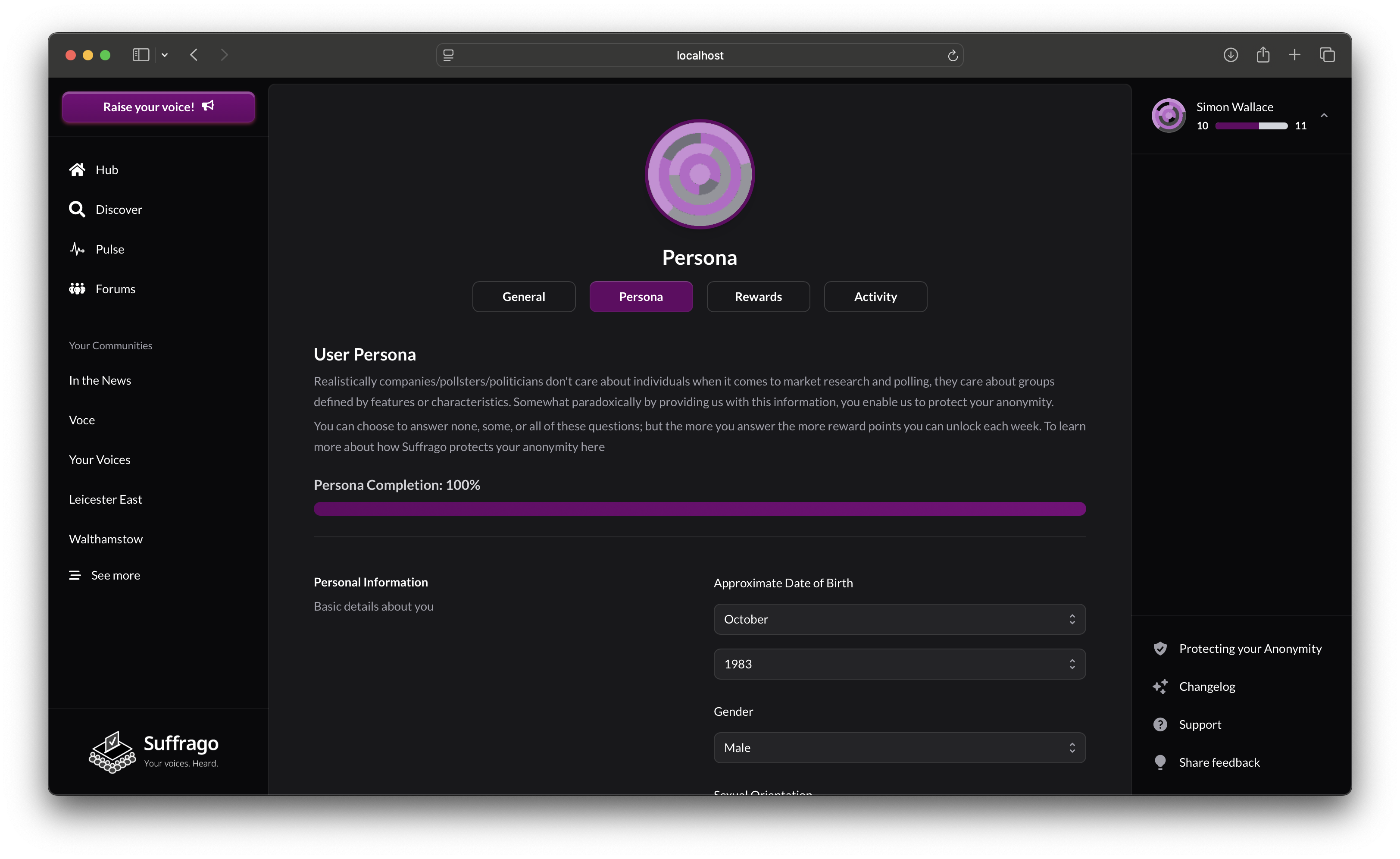
We don't need to know exactly how you as an individual voted, or exactly what you said; not with your Persona.
With your Persona we can combine your voice with others, so those who want to listen can hear what the group they are interested – their target "audience" – in is saying.
- Increased Rewards. Your Persona is your data; this is why we understand its value. So the more you fill in your Persona, the more Influence Points you can earn each day; which can be converted into Rewards (Coming soon)
- Strength in Numbers. With online conversations, individuals can be drowned out. Through your Persona we can amplify your voice by combining it through "audiences" and amplifying your voice for those who are listening.
- Protecting Small Audiences. We do everything we can to ensure your votes or statements are private; even when looking at results for an Audience. If less than 20 people are in an audience, we don't show the results.
Audiences = Actionable. Individuals = Noisy.
The online conversation is like having thousands of people shouting at you all at once, and often those who want to listen don't care about an individual's point of view. They care about what everyone saying.
Through your Persona both you and us make it easier for your voice to be heard, so it can be acted upon by those who are listening.
Suffrago will never be a personal echo chamber
You will never be silenced for expressing a viewpoint that we disagree with. We don't believe in confirmation bias, or just being told what we want to hear.
Differing opinions should always be encouraged; never silenced or mocked.
Get started today
Your voice is waiting to be heard by the internet's microphone, and the first step is to create your Suffrago account.
It's quick, easy, and free to start making your voice heard.
Raise your voice with Suffrago